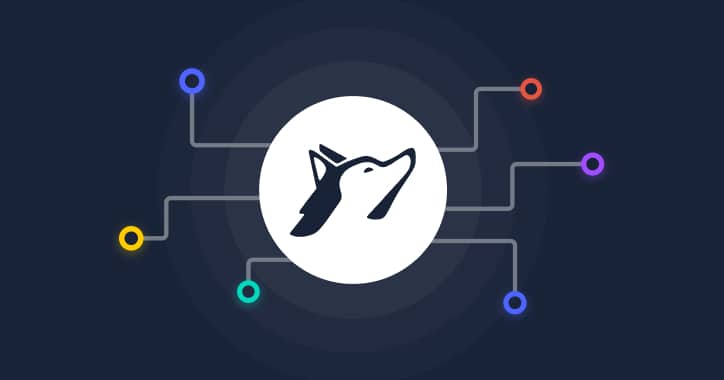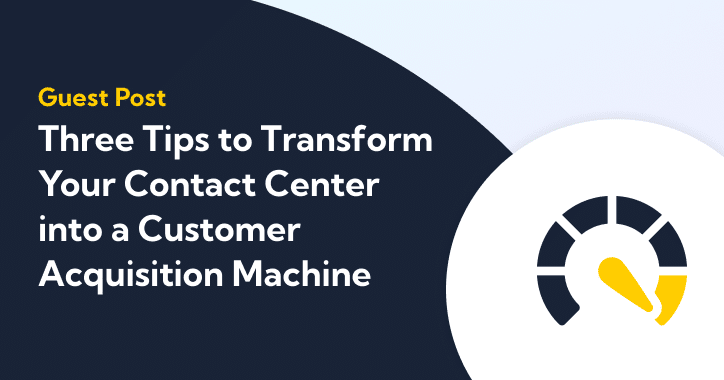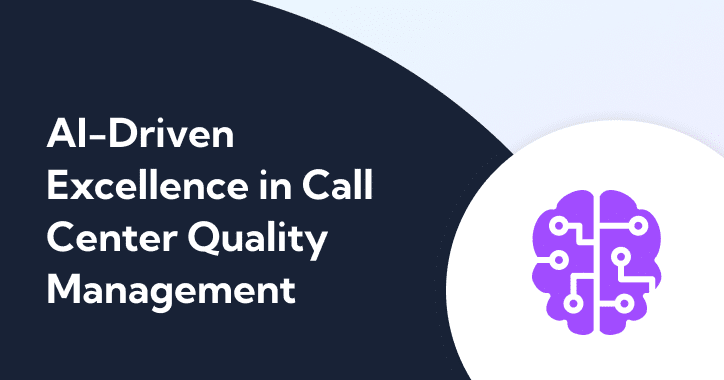Here’s the hard truth: most sales calls don’t really result in a closed deal.
If we had to make a list of reasons why your prospect didn’t consider your offering, ineffective coaching and lack of personalization would claim the top spots.
Sales call recording solutions provide you with the insights you need to highlight problems that lead to lost deals and coach your reps more effectively.
They also enable your reps to re-listen to their past customer conversations to keep track of issues and disputes, allowing them to tailor their approach for subsequent calls based on the customer’s feelings and willingness to take action.
In this guide, we’ll explore the benefits of implementing a sales call recording tool for your sales team.

The Value of Sales Call Recording
The main purpose behind sales call recording is to collect valuable information that you can use to coach sales reps, keep track of your conversations with customers, and tackle recurring issues that lead to lost sales.
Why Every Sales Team Should Adopt It
Unlike other forms of customer interactions, calls are the most personal. While this can provide your sales reps with numerous perks that can help them close more deals, it’s a double-edged sword.
Customers expect your sales reps to be more empathetic and less “salesly”. You don’t want your sales calls to be a headache – that won’t really aid your efforts of getting more sales. Instead, you want your reps to approach prospects with a mindset of building a relationship, not forcing a sale.
Call recording enables sales reps to derive useful information from their previous interactions with their customers. It reduces human error and makes reps more focused on listening to their customers’ problems instead of taking notes.
Some of the use cases of call recording for sales teams include:
- Coaching: Call recording provides a practical means for managers to coach reps.
- Compliance: Call recordings help sales managers monitor adherence to regulatory compliance laws and standards.
- Handling disputes: Recorded calls enable sales reps to resolve disputes with customers.
- Customer insights: Call recordings provide a more comprehensive overview of customer pain points, interests, buying patterns, and behavioral and tonal changes, which can help you restructure your sales strategies accordingly to boost revenue.
- Quality control: Maintaining a library of recorded customer calls can aid your quality control efforts by preventing common mistakes from happening again.
Revolutionize Sales Strategy
“If you can’t measure it, you can’t improve it.”
Sales recording is one of the best ways to measure the success of your sales strategies and identify potential areas of improvement. Without investing time and effort into improvement techniques, you’ll continue achieving the same or even worse results.
Listening to previous customer interactions will help you learn where the call went wrong and what your customers’ main problems are. Then, you can remedy these problems with personalized coaching and training.
By continuously fine-tuning your sales strategy, you’ll be able to drive better results and maximize your ROI revenue.
Benefits of Sales Call Recording
Some of the benefits of sales call recording software include:
Improving the Sales Process
Did you know that the sales process isn’t limited to the in-call time?
A potential sale typically starts with your customer learning about your company and filling out a form that contains their contact information.
Then, when a sales rep reaches out to the prospect to discuss their offer, the prospect may turn into a lead. Once your sales rep hangs up with the lead, you can develop a strategy that helps you grow your relationship with them until that relationship ultimately results in a loyal customer who will always be willing to do business with your company.
To summarize, a sales call is merely a step in the sales process, and by recording and evaluating your sales calls, you’ll be able to assess the effectiveness of your entire sales process from start to end.
For example, if a sales rep contacts a prospect and finds out that they barely have any interest in your product, you might need to add an extra field or two to your lead generation form to qualify leads more effectively.
Identifying Missed Opportunities
Listening to sales call recordings is a great way to identify missed opportunities.
A prospect might’ve turned into a customer if your rep said something different or directed the flow of the conversation more effectively. There’s also a possibility that your rep didn’t provide their prospect with all the information they need to make a decision.
By capturing missed opportunities, it’ll be easier for you to identify your reps’ shortcomings and coach them on how to close more deals by changing their behavior and sharing relevant and accurate information with prospects.
Enhancing Revenue Generation
No matter how much effort your sales reps put into their sales calls, revenue only flows in when they actually close some deals. Call recording boosts revenue generation by assisting your reps before, during, and after their calls with prospects.
Sales reps can listen to previous calls with customers and take notes that they can quickly take a glimpse at during their calls. Once the call has been finalized, a fresh new recording becomes available to them, which they can use in further developing their relationship with the lead and turning them into a customer. This approach is repeatable and sustainable, ensuring continuous revenue growth over time.
How Sales Reps Can Benefit
Now, let’s take a closer look at how call recording can help your sales reps.
Listening to Missed Details
Sales calls require a lot of work, from note-taking to paying attention and checking the prospect’s history with your company, sales reps can easily miss important details that could’ve helped them close more deals.
Call recording enables your sales reps to re-listen to the call to check if there’s anything important they didn’t pay attention to. Even if the first call didn’t ultimately result in a sale, reaching out to the prospect with another call after revising the call recording for missed details could help increase the odds of closing the deal.
Using Recordings as References for Future Calls
According to recent research, 42% of sales reps think they aren’t prepared enough before making sales calls due to a lack of relevant information about the customer.
Sales call recording enables your sales reps to better prepare themselves for follow-up calls with prospects and leads. They can help them remember important information about the customer and any issues they had that could be holding them back from taking action.
Imagine one of your sales reps calling a customer for the second or third time, and the customer finds out the rep doesn’t even remember their previous discussion and that they need to repeat themselves again. This leads to a poor customer experience and lost revenue.
Perfecting the Sales Pitch
The sales pitch is the only single tool that can help a sales rep close their dream deals. Call recording presents a great opportunity for sales reps to enhance their sales pitches.
By enabling your rep to listen to themselves introducing their pitch, they can think about new ways to improve it and A/B test their approach in future calls to learn what works and what doesn’t.
Sometimes, nailing the delivery of the pitch is all the sales rep needs to close more deals. Other times, a simple tweak in the rep’s tone of voice can make all the magic happen.
On top of that, reps can listen to their peers’ sales pitches for inspiration.
Effective Tips for Sales Reps
Here are some tips that can help sales reps improve their results:
Making the Most of Sales Call Recordings
For sales reps, call recordings provide an excellent opportunity for them to develop their skills and learn how to close more deals.
Listening to their own call recordings will not only help them gain a different perspective on how they interact with customers but also understand the customer sentiment.
Additionally, listening to call recordings of their peers with the highest success rates can help them identify their weaknesses and invest more effort into improving their skills.
Strategies for Effective Listening
Customers love it when companies actually treat them as human beings. They expect sales reps to remember their names, problems, and interests.
By showcasing that you’re invested in your prospects regardless of whether they convert into customers or not, you’ll be able to build valuable, long-lasting relationships and develop a positive brand image for your organization.
However, since sales reps make dozens of sales calls every day, it can be difficult to remember everything about each customer. That’s where call recording software can be handy. It does the mundane work for the reps by automatically recording their past calls with each customer and making them available on-demand.
Lessons to Take from Failed Calls
A failed call is a golden opportunity for improvement. Reviewing calls that didn’t end up with a sale helps you evaluate different closing deals and share the ones that work best with your team.
Leveraging Call Recordings for Sales Managers
As a sales manager, steering your team toward better sales outcomes can be challenging and resource-intensive.
Sales call recordings eliminate many of the obstacles that you may face when trying to improve your sales performance. By analyzing a large number of call recordings, you can extract actionable insights that help you direct your coaching efforts more efficiently.
You’ll be able to assist your reps in overcoming any challenges they face when attempting to close deals, from complex situations to frequent customer objections that hinder the sales process. Leveraging sales call recordings arms your sales team with invaluable skills to improve their prospecting, cold calling, and lead conversion.
Coaching Through Call Recordings
With sales call recording, you get a full library of training materials right under your fingertips. You just need to listen to a call, evaluate the conversation and your rep’s behavior, and write down what could’ve been done better to communicate it with your agent.
As a sales manager, you need to continuously provide your team members with positive feedback and constructive criticism to drive better results. It also shows your reps that you’re actually invested in their progress, which can significantly boost their morale and job satisfaction.
Onboarding New Agents with Recorded Calls
Recorded sales calls can help you maximize the effectiveness of the agent onboarding process and ensure that your new hires are ready to handle sales calls with customers.
Providing your new reps with real-world examples will help them get acquainted with behavioral best practices and how to avoid mistakes that lead to lost sales.
Further, you can utilize recorded calls in role-playing. Try muting the voice of the sales rep in the call recording and assign your new rep to act as if they’re the one handling the call. Another approach is to use the recorded calls as the foundation for role-playing sessions among your reps, where new sales reps get to play both the customer and the rep.
You can also repurpose the record conversations into useful knowledge base content that highlights best practices that lead to better sales closure rates and mistakes to avoid.
No matter what approach you take, it’s best to expose your reps to both positive and negative recorded calls. This will help them fill in the gaps in their own sales strategy.
Resolving Disputes Through Call Recordings
As much as you don’t want to happen, there will always be sales calls that end up with customers objecting.
Strategies for Conflict Resolution
Analyzing inbound and outbound calls enables you to design conflict resolution strategies that can help your reps handle disputes more effectively in the future. By listening to the call again and highlighting the point where the conversation took a wrong turn, you can think about different ways your rep could keep the situation under control.
Monitoring Adherence to Best Practices
Another benefit of recording sales calls is to ensure that your reps are adhering to your company’s compliance policies and best practices.
Did one of your reps forget to inform the customer that the call is being recorded? How has your rep introduced your product to the customer? Did they highlight the best ways the product can benefit them and solve their problems? All of these concerns can be addressed with call recording.
Best Practices in Sales Call Recording
As helpful as call recording can be, it can backfire without putting some ground rules in place.
Ethical Considerations and Privacy
Before recording a sales call, you must get verbal consent from both your customers and sales reps. You need to clarify the reason behind recording the call (for quality control purposes, for example) to comply with regional and international compliance standards. It’s also important to explain how you’ll be using these calls in the future.
Being upfront with your customers can foster long-lasting relationships with them, which can help you earn and retain more customers in the long run.
Maintaining an Organized Library of Calls
Organizing your sales call recordings library helps you save time and make recordings accessible to everyone in your organization.
Instead of randomly throwing in all the recordings in a single folder, you can organize them by calls that lead to closed deals and failed calls that could’ve led to better outcomes.
You can also classify recordings by product, rep, and date.
Regularly Reviewing and Refreshing Content
A sales call recording isn’t supposed to last forever in your archive. You should continuously update and review your call recordings with fresh content.
After all, using the same call recordings over and over again to coach your agents won’t likely help you achieve the results you seek.
Updating your library with new call recordings helps keep your coaching material timely, valuable, and in compliance with your data retention policy.
How Balto Can Arm Sales Teams for a Future-Forward Strategy
Balto helps you record sales calls and goes one step ahead by providing you with actionable insights that help your team transform their sales strategy.
Powered by AI and ML, Balto analyzes individual calls and provides sales reps with in-depth analytics and insights about their customers to support sales enablement.
Instead of relying on random sampling that doesn’t provide accurate insights, Balto automatically scans 100% of conversations for hidden cues and scores them with real-time QA. This enables you to identify the root causes behind lost deals and stop mistakes from turning into habits.
Improve your win rate by enabling reps to turn every single one into a success. Test different ways to handle customer objections, learn what works best, and share the results easily with your entire team.
Coach your reps with real-world examples to enhance the effectiveness of your coaching sessions and see instant results for your efforts.
Learn how Balto can help your sales team boost revenue in action with this free demo.






